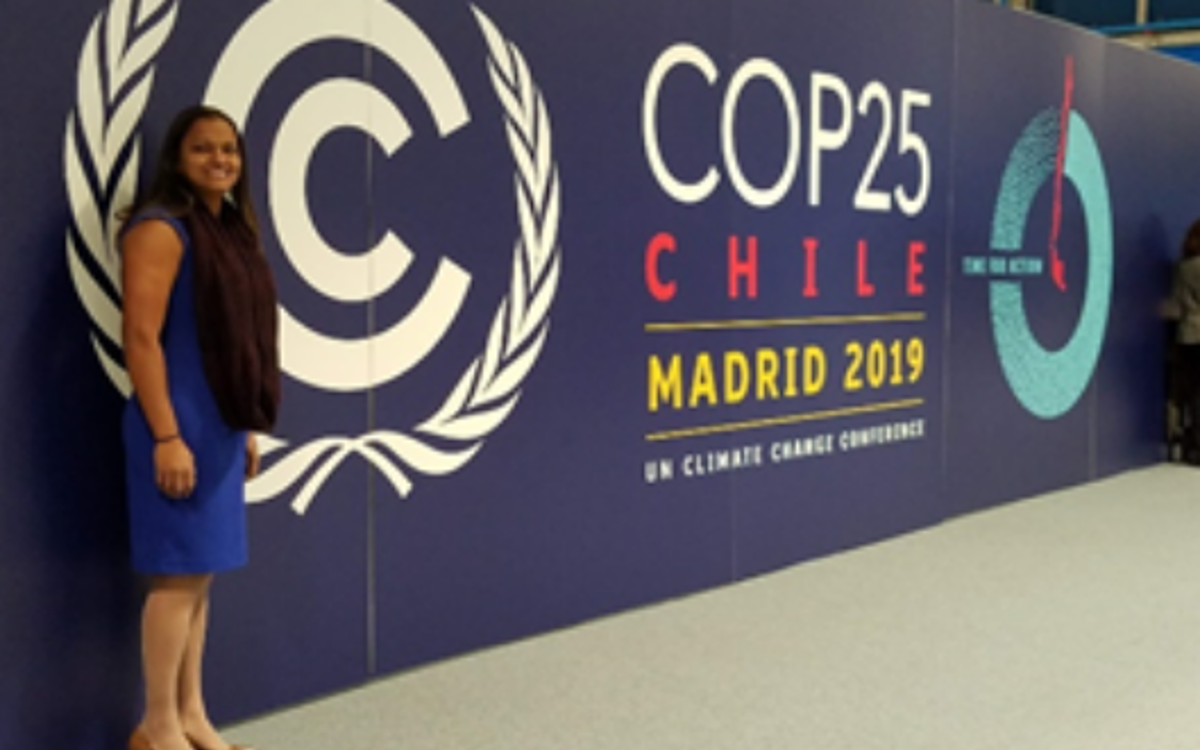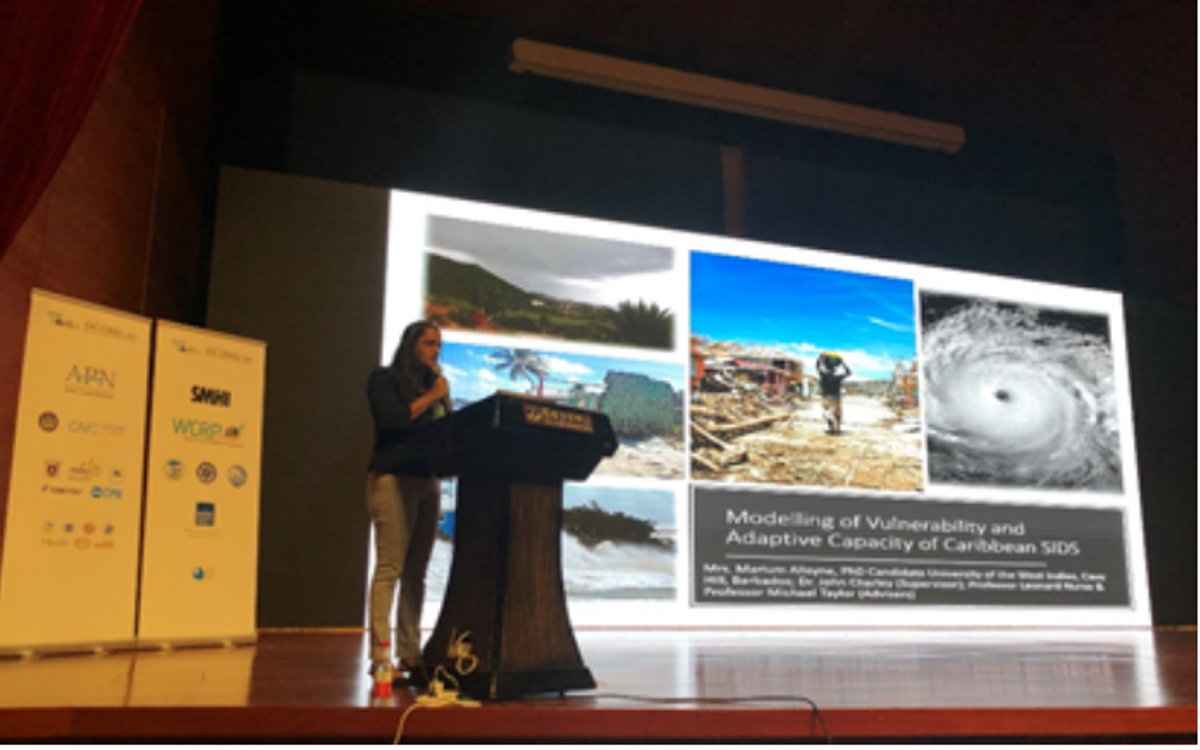By Marium Alleyne


Marium Alleyne
The impact of climate change on Small Island Developing States (SIDS) is not a new or emerging concept. Indeed, climate change is not restricted to SIDS, but the tragedy of the predicament is the disproportional impact on these countries, which makes them the most climate vulnerable in the world. So often, SIDS can be described as the barometers of climate change – the minor contributors who are the most impacted.
This sets the stage for the transformative concept of climate justice, which puts the people and communities most vulnerable to climate change at its core. Climate justice promotes a human-centred approach to climate action, which safeguards the rights of the most vulnerable people while distributing the benefits and burdens of climate change in an equitable way. Our efforts should be focused on developing evidence-based climate responses and promoting policy changes which proactively redistribute resources to end the social injustices brought on by climate change.
Should SIDS stand idly by, paying the price of climate change while maintaining a dependence on global commitments to reduce carbon emissions? The answer lies within the significant momentum for climate justice generated by grassroot-led movements for resilience. Vulnerable groups within regions such as SIDS can serve as vanguards for pioneering solutions for resilience and adaptation. To do so, a dynamic platform for identifying and categorising climate vulnerability is essential.
Facilitating grassroots movements for resilience



My research seeks to provide a transformational approach to solving the collective action problem of climate change, with a view to adding my own voice to the climate movement across SIDS. More specifically, my key research output is the Climate Change Vulnerability and Capacity Assessment (VCA) Model for Caribbean Small Island Developing States (CC-VCAM-CaribSIDS) - a scientifically robust method for modelling the climate vulnerability and adaptive capacity of SIDS. This will ultimately serve as a wide-ranging tool that can generate information for policymakers, technocrats, and even the average interested enthusiast.
Often, the most visible actors in climate change adaptation are researchers and policymakers, while the less visible community members, if armed with crucial knowledge, are most suited to drive meaningful change. As a result, I am also seeking to improve the communication of research to the most vulnerable populations within SIDS.
Community members are ‘insiders’, and localised climate change impacts are their realities. Community members possess first-hand knowledge, access, legitimacy, and leverage to address climate change in their contexts - things that are often beyond the reach of other stakeholders. We must leverage communities’ existing strengths and knowledge, balancing between developing new community-led actions and supporting existing community initiatives.
Community-driven efforts to build climate resilience calls for commitment and collaboration among multidisciplinary stakeholders and key allies, such as policymakers and community leaders, to carry forward a systems approach to climate adaptation.
In community-led initiatives, different members can take on different roles – such as convenors, facilitators, or enablers. This means every community member can be dubbed a climate champion and every community leader an advocate; similarly, every community activity can contribute to some aspect of climate action for adaptation.
In addition, avenues for community members to share good practices and lessons learned are essential to deepen and extend the impact of existing communal efforts. These avenues can motivate other communities by example and create further impetus to change mindsets and behaviours. Multiple forms of knowledge, including indigenous, place-based, and intergenerational knowledge, can be harnessed to build a foundation for systems transformation.
While local communities are not wholly responsible for addressing global climate change issues, community-based action is no doubt essential to the climate justice equation. This is because vulnerability is contextual, meaning that individual and community actions matter, and can drive ripple effects by inspiring motivating further collective action.
Grassroots actions can ultimately spur large-scale systematic change, which is required to tackle climate change effectively. Therefore, rather than viewing top-down or bottom-up strategies distinctly, let’s focus on supporting both: through organising for systemic change, while encouraging community-driven initiatives.
